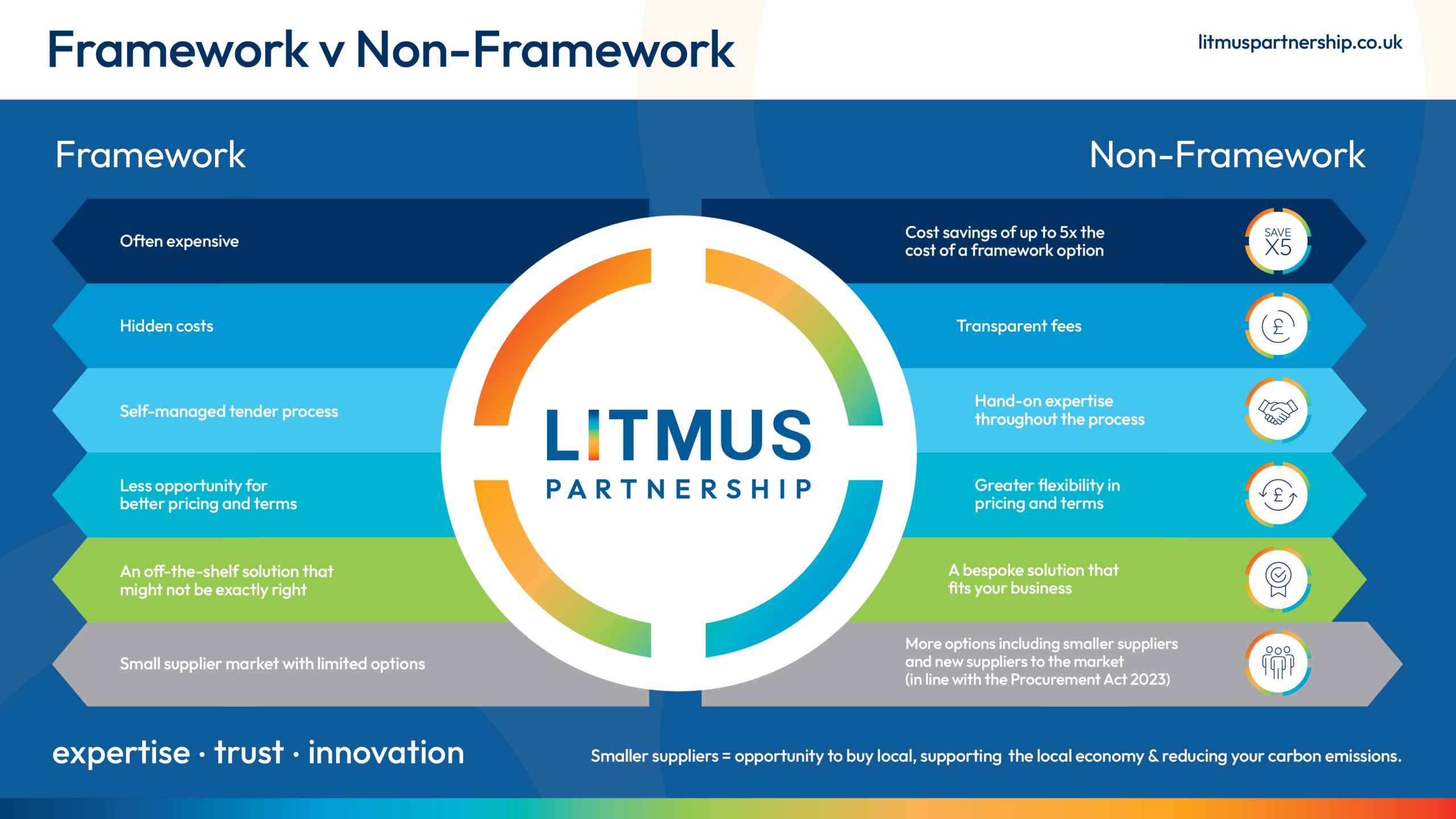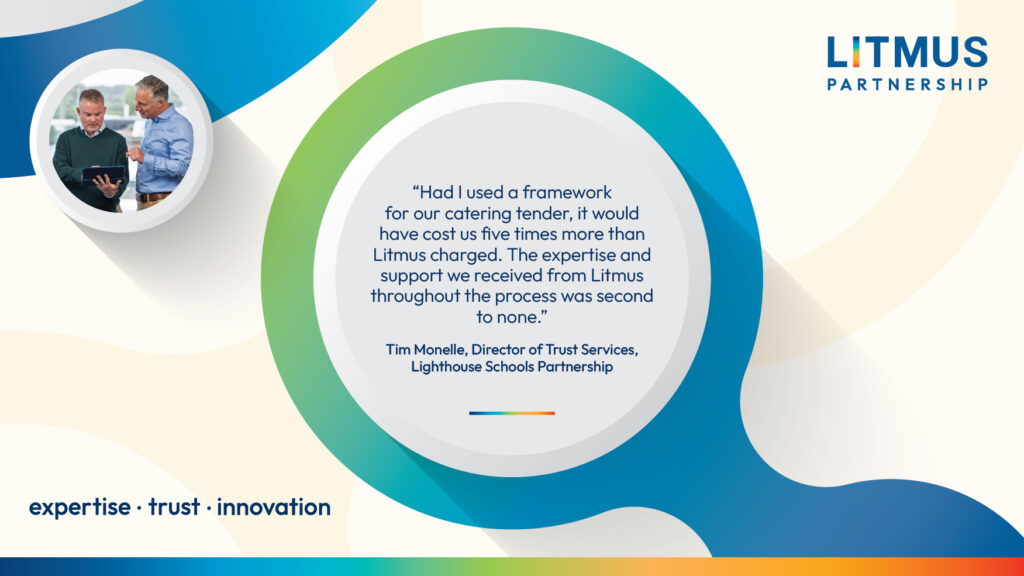We often get asked whether using a Framework when it comes to procuring goods and services is a good idea or not. There are pros and cons but the overwhelming benefit to taking a non-Framework route is the cost-savings you will likely benefit from.
And the savings can often total tens of thousands of pounds.
Tim Monelle is Director of Trust Services at Lighthouse Schools Partnership; a large Trust made up of 30 schools – 26 primary and four secondary. Combined, they have 13,500 students across their schools; more than many universities. Tim shared: “Had I used a framework for our catering tender, it would have cost us five times more than Litmus charged. The expertise and support we received from Litmus throughout the process was second to none.”
Cost is a driving factor for many within the public sector, especially in the challenging climate we’re all operating in. But cost aside, we’ve dived into the other pros and cons to consider:
Why choose a Framework
- Frameworks provide an off-the-shelf ‘ready-made’ agreement and so are particularly beneficial if your requirements haven’t changed. If you are looking to procure exactly the same as you did before, and therefore the same agreement can be used again, this will reduce admin and you can avoid a repetitive tender process.
- There is no upfront fee payable by the client.
- Approved Frameworks are promoted and supported by the DFE and comply with procurement regulations.
- Frameworks offer a tried and tested method, which in turn offers certainty and stability in the procurement process.
Why choose a non-Framework
- The cost savings. As we’ve mentioned, working with a Consultancy such as ours, can save you up to five times the cost compared to using a Framework. Unsurprisingly, the costs of using a Framework agreement aren’t always made clear; in fact, sometimes it can appear as no cost, when in reality the successful contractor has to pay a percentage over the life of the contract, passing on the cost to the client, working out to be much more expensive. We have a completely transparent fee model, so you know exactly where you stand.
- When you use a Framework, diversity of the supplier market is reduced, meaning you don’t see all the suppliers available to you. This particularly impacts small suppliers. A non-Framework route opens you up to all suppliers, giving you much better access to new or alternative sources of goods or services, as well as the opportunity to achieve better prices or terms.
It’s worth noting that one of the key purposes of the new Procurement Act 2023, which comes into force at the end of October, is to be more inclusive for small businesses entering the market, which is positive.
- Non-Frameworks allow for a more flexible tender process, where it can be tailored to your specific business needs. It has a much more personal feel, whereas Frameworks are based around a regimented, off-the-shelf process. You need to fit to it, rather than it fitting to you.
- If you choose to work with a Consultancy, you benefit from hands-on expertise throughout the tender process. We don’t just provide documentation and leave you to it; we gain a deep level of knowledge of what your needs are and ensure the right questions are asked, so you get the outcome you need.
- Buying services, such as catering or cleaning, is not the same as buying products. It’s more complex and dynamic, particularly when it comes to catering. Arguably, a Framework doesn’t allow for the same level of articulation of a client’s requirements in the same way a consultancy can provide.
In summary…

Finally, it is worth noting that at Litmus, we offer several funding options to ensure that our fees are affordable by all.
If you’d like to discover more about the various fee options available, click here.
The Litmus team











